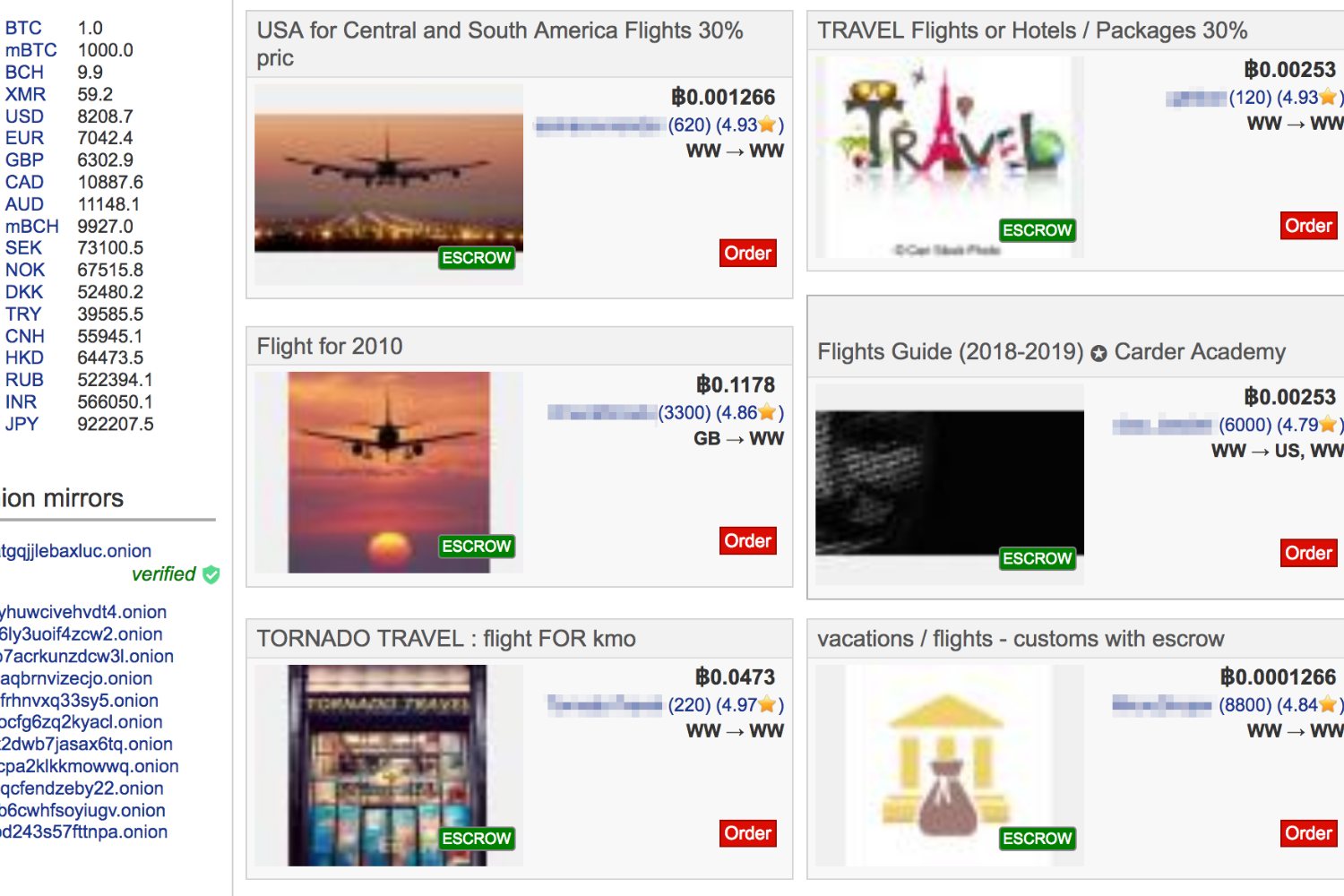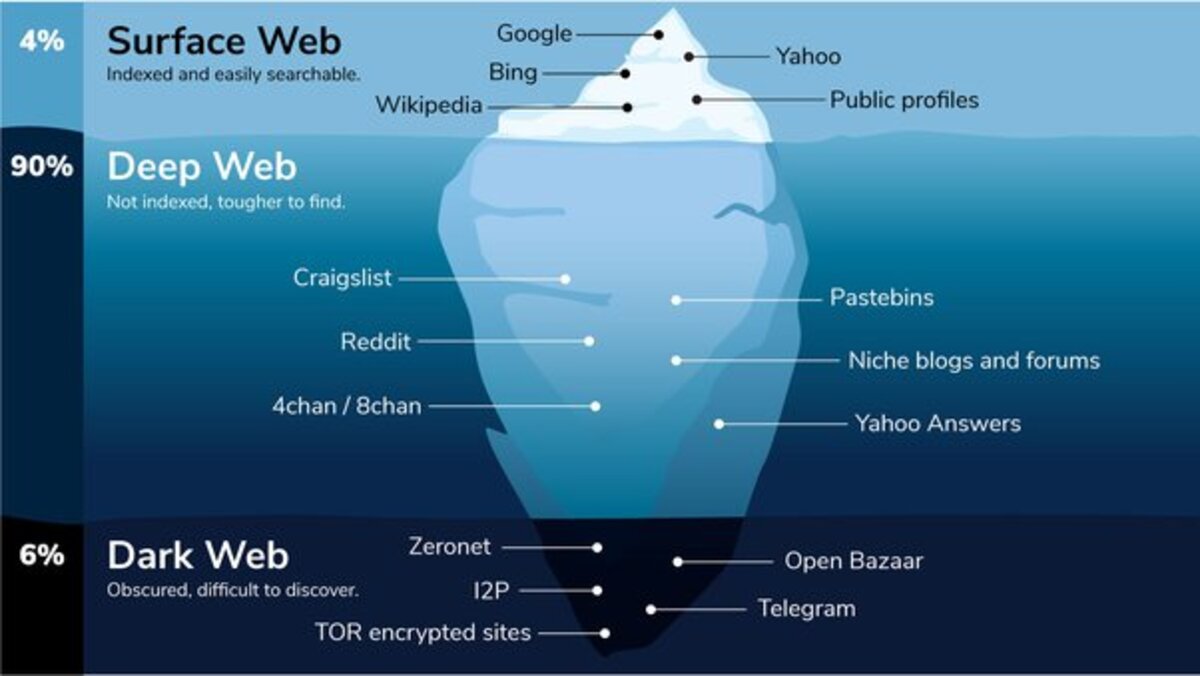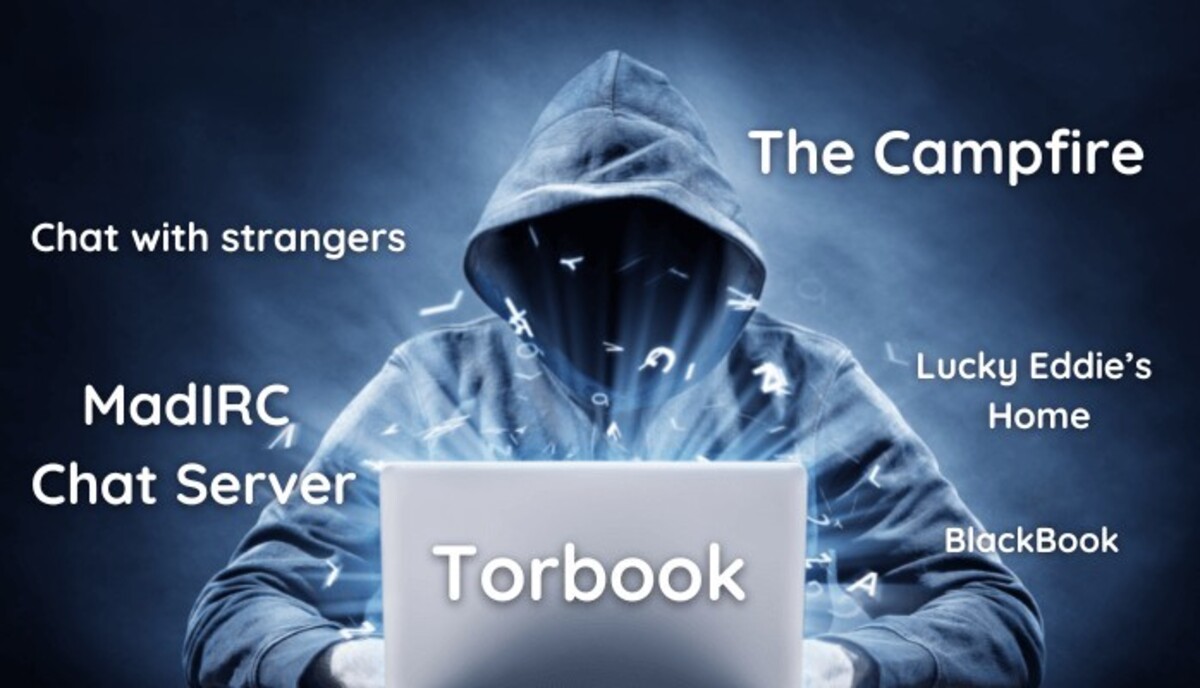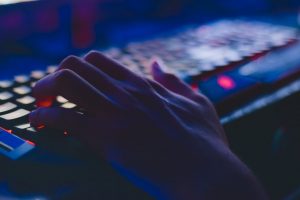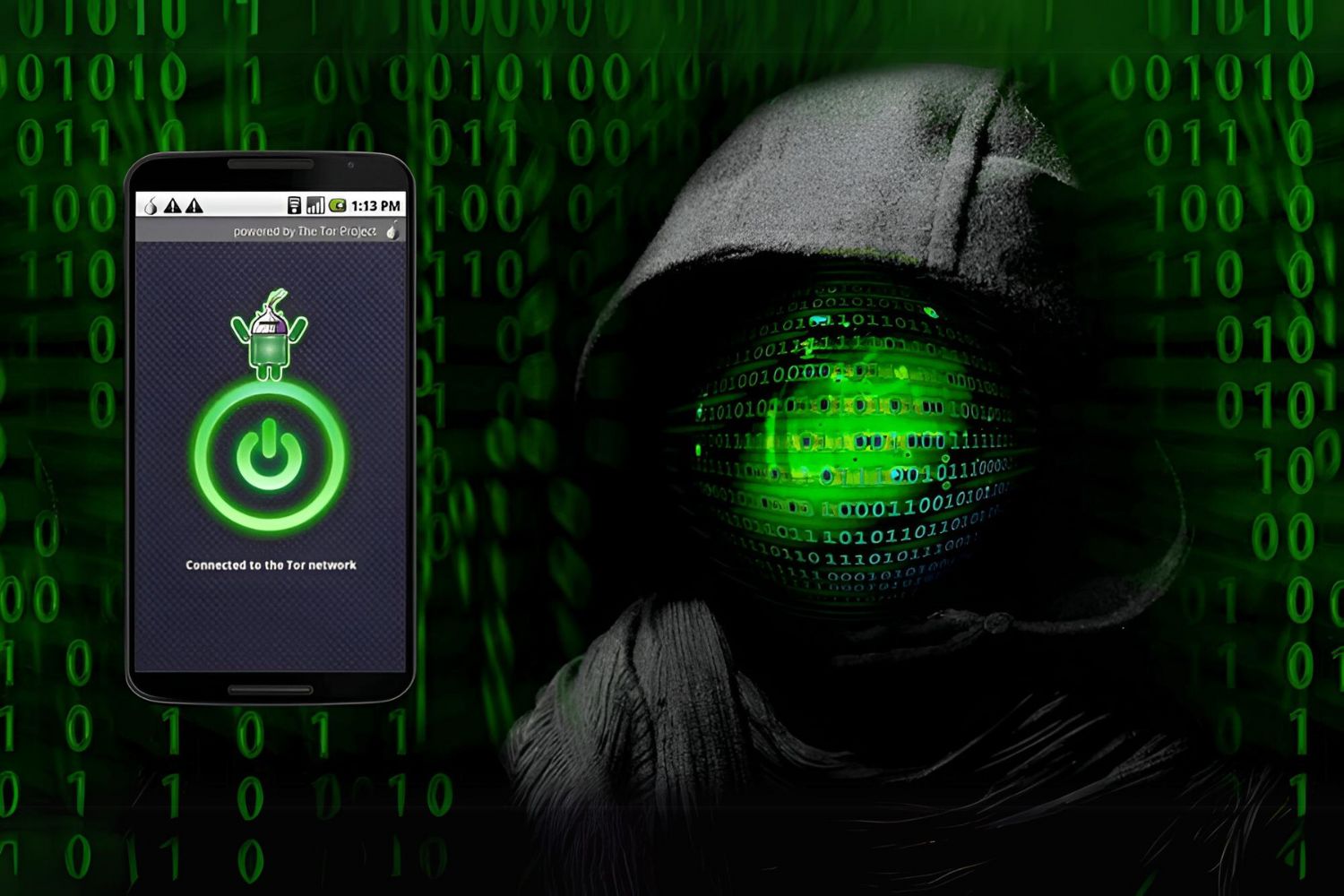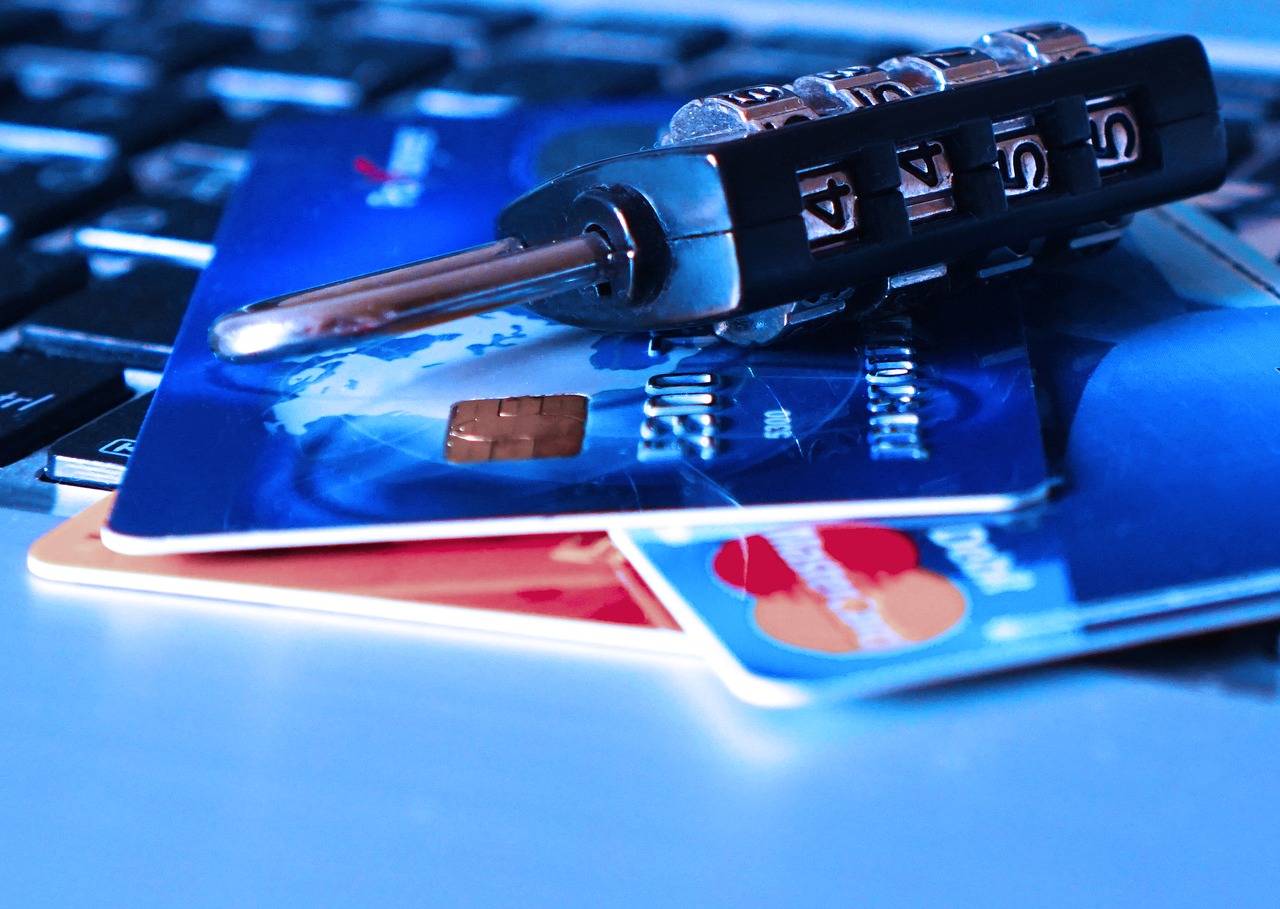Introduction
The dark web, a hidden part of the internet that requires special software to access, has gained notoriety for being a hub of illegal activities. While it is important to note that not everything sold on the dark web is illegal, it is undeniable that a significant portion of the transactions that take place in this hidden realm involve illicit goods and services. In this article, we will explore some of the popular items that people buy on the dark web.
The dark web provides a secretive platform for individuals seeking anonymity to conduct their online transactions. This anonymity, combined with the use of cryptocurrencies such as Bitcoin, makes it appealing to those involved in illegal activities. It is crucial to understand that engaging in illicit transactions on the dark web is not only illegal but also poses significant risks to both buyers and sellers.
While the dark web encompasses various marketplaces, discussion forums, and hidden services, it is important to note that these platforms are not exclusive to illegal activities. People also use the dark web for legitimate purposes, such as anonymous communication, whistleblowing, and avoiding censorship.
Nevertheless, there is no denying that the dark web has become synonymous with the sale of illegal goods and services. From drugs and weapons to stolen data and counterfeit money, the dark web offers a vast range of illicit commodities for those willing to explore its depths. In the following sections, we will delve into some of the most sought-after items on the dark web and shed light on the risks associated with engaging in such activities.
Drugs
One of the most prevalent items sold on the dark web is drugs. From marijuana and prescription medications to harder substances like cocaine and heroin, the dark web offers a wide variety of illicit drugs. These drugs are typically shipped through discreet packaging to avoid detection by law enforcement agencies.
The anonymity provided by the dark web enables buyers and sellers to conduct drug transactions without fear of being identified. Cryptocurrencies are often used as the preferred method of payment, providing an additional layer of anonymity.
However, buying drugs on the dark web is not without risks. There is a significant danger of purchasing counterfeit or adulterated substances that can have severe health implications. Furthermore, law enforcement agencies monitor dark web activities and have been successful in shutting down various drug marketplaces, leading to arrests and prosecutions.
It is crucial to emphasize that the illegal sale and use of drugs on the dark web contribute to the perpetuation of criminal activities. By purchasing drugs from these platforms, individuals indirectly support drug trafficking networks and organized crime.
Overall, while the dark web provides a convenient and secretive platform for drug transactions, the risks and legal consequences associated with engaging in such activities should not be underestimated. It is essential to prioritize personal safety, health, and legal compliance when considering any involvement in drug purchasing or usage.
Weapons
Another alarming category of items available on the dark web is weapons. From firearms to explosives, individuals can find a range of illegal weapons for sale. These weapons often bypass legal regulations, making them readily accessible to individuals with malicious intent.
The dark web provides a platform for arms dealers to operate in secrecy, catering to buyers looking to acquire weapons without undergoing the necessary background checks or legal procedures. The anonymity offered by the dark web allows these transactions to evade detection by law enforcement.
Buying weapons on the dark web poses significant risks for both buyers and society as a whole. The availability of dangerous weapons in the hands of individuals who may not have undergone proper training or background checks increases the likelihood of criminal activity, including acts of terrorism and violence.
It is important to note that the purchase and possession of illegal firearms or weapons are serious offenses punishable by law. Engaging in such activities not only puts the buyer at risk of legal consequences but also contributes to the proliferation of weapons in the hands of criminals.
Law enforcement agencies actively monitor dark web marketplaces for weapon sales and have been successful in shutting down numerous arms-dealing networks. These efforts aim to prevent the illegal trade of weapons and protect public safety.
By discouraging the purchase of weapons on the dark web, individuals can contribute to a safer society and help prevent potential acts of violence or harm. It is crucial to promote legal and responsible practices when it comes to the acquisition and possession of firearms and weapons.
Stolen Data
On the dark web, a thriving market exists for stolen data, including personal information, credit card details, and login credentials. Hackers and cybercriminals target organizations and individuals to obtain valuable data, which they then sell on the dark web to interested buyers.
Stolen data can include a wide range of information, such as names, addresses, social security numbers, bank account details, and passwords. This data is often used for various illegal activities, including identity theft, financial fraud, and unauthorized access to online accounts.
The dark web provides a convenient platform for the sale and purchase of stolen data due to its anonymity and encryption. Buyers can acquire personal information and financial details without revealing their identities, giving them the means to engage in criminal activities without being traced.
The sale of stolen data on the dark web poses a significant threat to individuals and organizations alike. It can result in financial losses, reputational damage, and invasion of privacy for those whose data has been compromised.
Law enforcement agencies and cybersecurity firms continuously work to combat the trade of stolen data on the dark web. They employ various techniques, including monitoring and infiltrating dark web marketplaces, to track down cybercriminals and disrupt their illicit operations.
Protecting personal information and securing online accounts is crucial to mitigating the risks associated with stolen data on the dark web. This can be achieved by implementing strong passwords, regularly updating software and security systems, and being cautious of suspicious emails or websites.
By being vigilant and taking necessary precautions, individuals and organizations can help protect themselves and minimize the impact of stolen data on the dark web. It is important to remain informed about emerging threats and actively participate in efforts to enhance cybersecurity.
Counterfeit Money
Counterfeit money is a significant issue in both the physical and digital world, and the dark web has become a marketplace for the sale of fake currencies. With advancements in printing and technology, counterfeiters can create counterfeit bills that closely resemble genuine currency, making it difficult for individuals and businesses to detect the fraud.
The dark web provides an avenue for counterfeiters to sell fake currencies, including banknotes from various countries. These counterfeit bills are often sold at a fraction of their face value, attracting buyers looking to profit from the illegal circulation of money.
The purchase of counterfeit money on the dark web poses several risks. Firstly, using counterfeit money is illegal and can result in criminal charges if caught. Additionally, individuals who unknowingly accept counterfeit bills can suffer financial losses and damage to their reputation if the counterfeit is later detected.
Law enforcement agencies around the world are actively working to combat the production and sale of counterfeit money, including monitoring the dark web for illegal activities. While their efforts have led to the shutdown of counterfeit currency marketplaces, new ones continue to emerge in different forms.
To protect against counterfeit money, individuals and businesses should be diligent in inspecting bills for security features and familiarize themselves with the latest security measures implemented on genuine currency. Furthermore, using reputable financial institutions and payment methods can help mitigate the risk of receiving counterfeit money.
By being vigilant and informed about the dangers of counterfeit money, individuals can contribute to reducing its circulation and safeguarding the integrity of financial systems. It is crucial to remain aware of the risks and legal implications associated with engaging in the trade or use of counterfeit currency.
Fake Passports and IDs
The dark web is infamous for being a marketplace where individuals can acquire fake passports, driver’s licenses, and other forms of identification. These counterfeit documents enable identity theft, illegal immigration, and other fraudulent activities.
Sellers on the dark web offer a range of fake passports and IDs from different countries, often with high-quality replicas that closely resemble genuine documents. These counterfeit documents can be used to establish false identities, gain access to restricted areas, or facilitate illegal activities without detection.
Buying fake passports and IDs on the dark web is not only illegal but also poses significant risks. Individuals who use counterfeit documents can face severe consequences, including criminal charges and imprisonment. Additionally, individuals who unknowingly accept fake identification can suffer financial losses or become unintentionally involved in criminal activities.
Law enforcement agencies, working in collaboration with international organizations, are actively combating the trade of fake passports and IDs on the dark web. They conduct undercover investigations to identify and apprehend individuals involved in the production and sale of counterfeit documents.
It is essential for individuals to be aware of the dangers associated with using fake passports and IDs. They should always ensure they have valid and legitimate identification when traveling or engaging in any official transactions.
Government agencies and businesses must continuously improve their security measures to stay ahead of counterfeiters. Implementing advanced technology and incorporating security features into official identification documents can help deter the production and use of fake passports and IDs.
By remaining vigilant and informed about the risks associated with fake passports and IDs, individuals can play a crucial role in combating identity fraud and protecting the integrity of identification systems. It is essential to adhere to legal and ethical practices when it comes to personal identification and document verification.
Hacking Tools and Services
The dark web is home to a vast marketplace where individuals can acquire hacking tools and services. These tools and services range from malware and exploits to hacking tutorials and hired hackers. The availability of such resources on the dark web poses significant risks to individuals, organizations, and even national security.
Hacking tools and services sold on the dark web cater to both experienced hackers and individuals with minimal technical skills. These tools allow cybercriminals to exploit vulnerabilities in computer systems and networks, gaining unauthorized access to sensitive information or causing damage.
The sale of hacking tools and services on the dark web enables individuals to engage in various cybercrimes, including identity theft, financial fraud, and data breaches. These illicit activities can result in significant financial losses, reputational damage, and compromised personal or corporate information.
Law enforcement agencies worldwide are actively engaged in combating the trade of hacking tools and services on the dark web. They work closely with international partners and cybersecurity experts to identify and apprehend individuals involved in these illegal activities.
To protect against the risks associated with hacking tools and services, individuals and organizations should prioritize cybersecurity measures. This includes regularly updating software, implementing robust security protocols, and educating users about common cyber threats and best practices.
By staying vigilant and proactive in defending against cyber threats, individuals and organizations can reduce the likelihood of falling victim to hacking tools and services available on the dark web. It is crucial to prioritize security and invest in reliable cybersecurity solutions to safeguard sensitive information and maintain digital resilience.
Exploits and Zero-day Vulnerabilities
Within the dark web, a thriving marketplace exists for the sale of exploits and zero-day vulnerabilities. Exploits are software codes that take advantage of vulnerabilities or weaknesses in computer systems, allowing unauthorized access or control. Zero-day vulnerabilities refer to the security flaws that are unknown to software developers, giving cybercriminals an edge in executing attacks.
The trade of exploits and zero-day vulnerabilities on the dark web poses significant threats to individuals, organizations, and even government entities. Cybercriminals can exploit these vulnerabilities to gain unauthorized access to networks, steal sensitive information, or carry out devastating cyber-attacks.
Exploit developers and hackers who discover zero-day vulnerabilities sell their findings on the dark web to interested parties, including criminal organizations or even government agencies seeking to enhance their offensive cyber capabilities.
The sale and use of exploits and zero-day vulnerabilities on the dark web contribute to the advancement of cybercrime and pose challenges to cybersecurity professionals. Software developers and security experts continuously work to identify and patch vulnerabilities, but the demand for these exploits remains high.
Law enforcement agencies and cybersecurity firms actively monitor the dark web for the trade of exploits and zero-day vulnerabilities. They collaborate with the technology industry to develop comprehensive security patches and work towards responsible disclosure of these vulnerabilities to prevent them from falling into the wrong hands.
To mitigate the risks associated with exploits and zero-day vulnerabilities, individuals and organizations must prioritize regular software updates and security patches. Good cybersecurity hygiene, such as strong passwords, robust firewalls, and intrusion detection systems, should also be implemented.
By staying proactive and resilient against evolving cyber threats, individuals and organizations can reduce the likelihood of falling victim to exploits and zero-day vulnerabilities available on the dark web. It is crucial to remain informed about emerging threats, stay updated with security practices, and collaborate with cybersecurity experts to maintain a robust defense against cyber-attacks.
Malware and Botnets
The dark web serves as a breeding ground for the sale and distribution of malware and botnets, posing significant threats to individuals, businesses, and the overall cybersecurity landscape. Malware refers to malicious software designed to gain unauthorized access, disrupt operations, steal sensitive information, or launch cyber-attacks. Botnets, on the other hand, are networks of infected computers that are hijacked and controlled by cybercriminals.
Malware and botnets are commonly traded on the dark web due to the anonymity and encryption it offers. Cybercriminals use these platforms to distribute malware, obtain unauthorized access to systems, and harness the power of compromised computers to deploy attacks.
The risks associated with malware and botnets are extensive. Victims can suffer financial losses, data breaches, reputational damage, and even legal consequences. Malware infections can lead to the loss of personal information, financial theft, or the compromise of proprietary business data.
Law enforcement agencies and cybersecurity firms actively monitor the dark web for the sale, distribution, and communication related to malware and botnets. They employ advanced techniques to trace and disrupt cybercriminal operations, ensuring the safety and security of individuals and organizations.
To protect against the threats posed by malware and botnets, individuals and organizations should adopt a multi-layered approach to cybersecurity. This includes utilizing robust antivirus software, regularly updating operating systems and applications, implementing strong firewalls, and educating users about basic cybersecurity practices.
Collaboration and information sharing among cybersecurity professionals, industry partners, and law enforcement agencies are crucial in combating the spread of malware and botnets. By reporting suspicious activities and sharing threat intelligence, we can collectively work towards a safer digital environment.
By staying vigilant, implementing robust cybersecurity measures, and fostering a culture of security awareness, individuals and organizations can strengthen their resilience against malware and botnets. It is essential to prioritize the protection of systems, data, and user privacy in the face of ever-evolving cyber threats.
DDoS Attacks
The dark web has become a hub for individuals and groups offering Distributed Denial of Service (DDoS) attack services. DDoS attacks are malicious attempts to overwhelm a targeted website or online service, rendering it inaccessible to legitimate users. These attacks involve flooding the target with an overwhelming volume of traffic or by exploiting vulnerabilities in the target’s infrastructure.
DDoS attack services available on the dark web are often sought after by individuals seeking to disrupt online services or extort money from targeted organizations. These services offer various strategies and tools that can be used to orchestrate large-scale attacks, causing significant disruptions and financial losses for the victims.
The main motive behind DDoS attacks can range from personal vendettas to ideological or financial gain. Cybercriminals exploit the anonymity and encryption of the dark web to sell and purchase these services, making it difficult to trace and hold them accountable.
DDoS attacks pose a severe threat to businesses, individuals, and the stability of online services. They can result in financial losses, damage to reputation, and disrupt essential activities. Online platforms, such as e-commerce websites, financial institutions, and government service portals, are often targeted for these attacks.
Efforts to counter DDoS attacks and mitigate their impact involve deploying advanced network security measures, such as firewalls, traffic filtering, and load balancing. Organizations are encouraged to develop robust incident response plans and collaborate with cybersecurity experts to ensure timely detection and effective mitigation of these attacks.
Law enforcement agencies and cybersecurity firms work diligently to track down and take action against those involved in offering DDoS attack services on the dark web. Coordinated efforts with internet service providers and international cooperation are vital in identifying and prosecuting individuals responsible for launching these attacks.
Education and awareness play a crucial role in protecting against DDoS attacks. Individuals and organizations should stay informed about the latest attack techniques, implement responsive security measures, and employ services that provide DDoS protection. By staying proactive in defending against DDoS attacks, we can collectively safeguard the stability and availability of online services.
Cryptocurrency
The dark web has become closely associated with the use of cryptocurrency, particularly Bitcoin, as a way to facilitate transactions with anonymity. Cryptocurrency offers a decentralized and encrypted method of payment, making it appealing to users seeking to engage in illicit transactions on the dark web.
Cryptocurrency provides a degree of anonymity as transactions are recorded on a public ledger, but the identity of the parties involved remains pseudonymous. This pseudo-anonymity, combined with the security and ease of use offered by cryptocurrencies, has made them the preferred method of payment in dark web transactions.
While cryptocurrency itself is not illegal, its usage on the dark web often facilitates the sale of illegal goods and services. From drugs and weapons to stolen data and counterfeit money, cryptocurrencies offer a way for buyers and sellers to conduct financial transactions without traditional banking institutions tracking their activities.
It is important to note that engaging in illegal activities using cryptocurrency is not a foolproof method of evading law enforcement. Authorities have developed techniques to trace cryptocurrency transactions and identify individuals involved in illicit activities. Furthermore, regulations and compliance measures are being implemented to enhance the transparency and security of cryptocurrency transactions.
Outside of the dark web, cryptocurrencies have gained attention for their potential to revolutionize financial systems and promote decentralization. Blockchain technology, which underlies cryptocurrencies, has the potential to enhance transparency, security, and efficiency in various sectors outside of the illegal activities associated with the dark web.
Cryptocurrency enthusiasts and legitimate businesses are actively working to promote responsible usage and compliance with regulatory measures. Additionally, efforts are being made to educate individuals about the risks and benefits of cryptocurrencies, as well as measures to ensure they are used for legal and ethical purposes.
As cryptocurrencies continue to evolve, industry stakeholders, law enforcement agencies, and regulators must work together to strike a balance between innovation and ensuring the integrity of financial systems. By promoting responsible usage and implementing appropriate regulatory frameworks, we can harness the potential of cryptocurrency while minimizing the risks associated with its misuse.
U.S. Social Security Numbers
U.S. Social Security numbers (SSNs) are highly valuable personal identifiers that are often bought and sold on the dark web. SSNs are issued to U.S. citizens and residents for the purpose of tracking their earnings and working history, but they have become sought-after commodities for identity theft, financial fraud, and other types of illegal activities.
The trade of SSNs on the dark web enables criminals to assume someone’s identity, open fraudulent bank accounts, file false tax returns, or commit various types of financial fraud. With access to an individual’s SSN, cybercriminals can wreak havoc on their victims’ financial lives and cause long-lasting damage to their reputation.
The dark web provides an anonymous marketplace where cybercriminals can sell stolen SSNs to individuals looking to exploit these identities for personal gain. These SSNs are often obtained through various means, such as data breaches or phishing scams, highlighting the importance of safeguarding personal information and being vigilant about online security.
The sale and use of stolen SSNs on the dark web constitute criminal activity and can lead to severe legal consequences for all parties involved. Law enforcement agencies actively track and investigate individuals engaged in the trade of stolen personal information, working to disrupt criminal networks and bring the perpetrators to justice.
Protecting one’s SSN is crucial in preventing identity theft and financial fraud. Individuals should exercise caution when sharing personal information online, be wary of phishing attempts, regularly monitor financial accounts, and report any suspicious activities to the appropriate authorities.
Government agencies and organizations must continually improve security measures to protect SSNs and other sensitive personal information. This involves implementing robust data protection protocols, enforcing strict access controls, and educating individuals about the importance of securing their personal information.
By taking proactive steps to protect their SSNs and raising awareness about the risks associated with stolen personal information, individuals and organizations can collectively combat the trade of SSNs on the dark web and minimize the impact of identity theft on innocent victims.
Credit Card Details
Credit card details are highly sought-after commodities on the dark web, where cybercriminals buy and sell stolen card information. These stolen credit card details include the cardholder’s name, card number, expiry date, and security code, which can be used to make unauthorized purchases or engage in fraudulent activities.
The trade of credit card details on the dark web poses a significant threat to individuals and businesses. Cybercriminals can use stolen credit card information to make purchases online or create cloned cards for in-person transactions, resulting in financial losses for the victims and damaging the reputation of the affected businesses.
Credit card fraud is a pervasive issue, and the dark web plays a role in facilitating these illicit activities by providing a marketplace for cybercriminals to sell stolen card data to interested buyers. The anonymity and encryption offered by the dark web make it challenging to trace and hold these criminals accountable.
Law enforcement agencies, financial institutions, and cybersecurity firms continuously monitor the dark web and collaborate to identify and disrupt networks involved in the sale and use of stolen credit card details. Efforts are made to educate individuals and businesses about the risks and preventive measures associated with credit card fraud.
Mitigating the risks associated with credit card details involves proactive measures, such as regularly monitoring bank statements for unauthorized transactions, maintaining strong passwords, and promptly reporting any suspicious activity to the card issuer or bank. Implementing multi-factor authentication and keeping software and security systems updated can also minimize the risk of falling victim to credit card fraud.
Businesses need to prioritize data security and adhere to industry best practices to prevent breaches that compromise credit card information. This includes complying with Payment Card Industry Data Security Standard (PCI DSS) requirements, conducting regular security audits, and implementing robust encryption and access controls.
By remaining vigilant, promptly reporting fraudulent activity, and implementing robust security measures, individuals and businesses can contribute to reducing the trade of stolen credit card details on the dark web. Collaboration between law enforcement agencies, financial institutions, and technology experts can help disrupt cybercriminal networks and protect consumers from financial losses.
Personal Information
Personal information is a valuable commodity on the dark web, where cybercriminals trade and exploit stolen data for various malicious purposes. Personal information includes names, addresses, phone numbers, social security numbers, email addresses, and other identifying details. This stolen data can be used for identity theft, financial fraud, or even targeted phishing attacks.
The trade of personal information on the dark web exposes individuals to significant risks. Cybercriminals can use this data to impersonate victims, gain unauthorized access to accounts, or carry out sophisticated social engineering attacks. Victims may experience financial losses, damaged credit scores, and emotional distress as a result of their stolen personal information.
Data breaches, hacking incidents, and phishing scams are some of the ways cybercriminals obtain personal information. The dark web serves as a marketplace for selling and purchasing this stolen data, allowing criminals to profit from the exploitation of innocent individuals.
Law enforcement agencies and cybersecurity firms actively work to combat the trade of personal information on the dark web. They employ advanced techniques to track down cybercriminals, dismantle illegal networks, and raise awareness about the importance of data security.
Protecting personal information is crucial in minimizing the risk of falling victim to identity theft or other forms of fraud. Individuals should take proactive measures, such as using strong and unique passwords, enabling two-factor authentication, being cautious of phishing attempts, and regularly monitoring financial accounts and credit reports.
Organizations also have a responsibility to safeguard the personal information of their customers or users. This requires implementing robust data protection measures, educating employees about cybersecurity best practices, and following regulatory guidelines and compliance standards.
It is important for individuals and organizations to collaborate in sharing information about security threats and promoting good cybersecurity practices. By staying informed, vigilant, and proactive, we can collectively defend against the trade and exploitation of personal information on the dark web, ensuring the privacy and security of individuals and businesses.
Falsified Academic Credentials
The dark web is known for being a marketplace where individuals can acquire falsified academic credentials, including fake diplomas, degrees, and certificates. These fraudulent documents can be used to deceive employers, educational institutions, or licensing authorities, granting individuals opportunities or privileges they do not deserve.
Falsified academic credentials pose serious risks to individuals and organizations. Hiring individuals based on fake qualifications can result in financial losses, damage to reputation, and compromised quality of work. It undermines the integrity of education systems and devalues legitimate qualifications earned through hard work and dedication.
The trade of falsified academic credentials on the dark web allows individuals to deceive background checks and establish false credentials. By purchasing fake diplomas or degrees, individuals can misrepresent their educational qualifications, potentially gaining unfair advantages in job applications, promotions, or career advancements.
Employers, licensing authorities, and educational institutions must implement robust verification processes to ensure the authenticity of academic credentials. Background checks, contacting educational institutions directly, and employing reputable verification services can help prevent the acceptance of fraudulent qualifications.
Law enforcement agencies worldwide are actively working to dismantle networks involved in the sale of fake academic credentials on the dark web. Efforts are made to raise awareness about the risks associated with falsified credentials and promote ethical practices in education and employment sectors.
It is essential for individuals and organizations to exercise due diligence in verifying academic qualifications. This includes verifying transcripts, checking accreditation of educational institutions, and conducting thorough interviews and reference checks during the hiring process.
To combat the trade of falsified academic credentials, educational institutions can implement improved security measures, such as holograms or unique identifiers, on their official documents. Collaboration between educational institutions, employers, and law enforcement agencies is crucial in sharing information and taking legal action against individuals and organizations involved in manufacturing or using fake academic credentials.
By prioritizing the verification of academic credentials and promoting ethical practices, individuals and organizations can mitigate the risks associated with falsified academic qualifications. Upholding the integrity of educational systems and ensuring transparency in hiring processes are essential in maintaining trust and credibility in academic and professional environments.
Login Credentials of Popular Websites
The dark web is a notorious marketplace for the sale and trade of login credentials of popular websites. These credentials can include usernames, email addresses, and passwords, allowing cybercriminals to gain unauthorized access to online accounts.
Obtaining login credentials on the dark web is often the result of data breaches, phishing attacks, or the use of malware that steals personal information. Cybercriminals sell these credentials to interested parties, who may use them for various malicious activities, such as identity theft, financial fraud, or unauthorized access to sensitive information.
The trade of login credentials on the dark web poses significant risks to individuals and organizations. For individuals, unauthorized access to their accounts can lead to financial losses, unauthorized purchases, or the compromise of personal information. For businesses, it can result in reputational damage, data breaches, and compromised customer trust.
Protecting login credentials is of utmost importance in mitigating the risks associated with the trade of these credentials on the dark web. Individuals should adopt strong and unique passwords, enable two-factor authentication when available, regularly monitor their accounts for suspicious activity, and be cautious of phishing attempts.
Organizations have a responsibility to implement robust security measures to protect user account information. This includes enforcing password requirements, implementing multi-factor authentication, encrypting sensitive data, and educating users about best practices in account security.
Law enforcement agencies and cybersecurity firms work tirelessly to track down and disrupt networks involved in the trade of login credentials on the dark web. Collaboration and information sharing between international law enforcement agencies, businesses, and technology experts are crucial in detecting and preventing cybercrime.
Swift action is necessary for individuals and organizations when they suspect or confirm unauthorized access to their accounts. Immediately changing passwords, notifying the respective websites, and reporting the incident to law enforcement can help mitigate the impact of compromised login credentials.
By staying informed about the risks associated with the trade of login credentials, practicing good cybersecurity habits, and promptly reporting suspicious activity, individuals and organizations can collectively contribute to combating cybercrime and safeguarding their online accounts.
Fake Diplomas and Certificates
The dark web serves as a marketplace for individuals to acquire fake diplomas and certificates, deceiving others into believing they possess qualifications they do not. These fraudulent documents can be used to secure employment, promotions, or even admission to educational programs.
Fake diplomas and certificates pose significant risks to both individuals and institutions. Hiring individuals based on false qualifications can lead to financial losses, compromised work quality, and damage to an organization’s reputation. It undermines the credibility of educational systems and devalues legitimate achievements.
The trade of fake diplomas and certificates on the dark web enables individuals to present themselves as qualified professionals without having the necessary skills or knowledge. Purchasing these documents allows individuals to misrepresent their educational backgrounds, potentially gaining unfair advantages in employment or academic pursuits.
Institutions and employers need to implement rigorous verification processes to ensure the authenticity of diplomas and certificates. Thoroughly checking credentials, contacting educational institutions for verification, and employing reputable credential verification services can help mitigate the risk of accepting fraudulent qualifications.
Law enforcement agencies, educational institutions, and accreditation bodies work collaboratively to identify and take action against those involved in the manufacturing and distribution of fake diplomas and certificates. Efforts are made to raise awareness about the prevalence of these fraudulent documents and the ethical implications of their use.
Vigilance is crucial in verifying the authenticity of diplomas and certificates. Employers and education institutions are encouraged to scrutinize documents, examine seals and holograms, cross-reference information, and engage in thorough background checks to ensure legitimacy.
Technology can play a role in combating the trade of fake diplomas and certificates. As advancements in digital credentials emerge, utilizing secure and tamper-proof digital platforms can enhance the verification process, making it more reliable and efficient.
By promoting transparency, implementing robust verification processes, and raising awareness, individuals and institutions can collectively combat the trade of fake diplomas and certificates on the dark web. Upholding the integrity of educational systems and ensuring fair hiring practices contribute to maintaining trust and credibility in academic and professional environments.
Prescription Medications
The dark web has become a platform for the illicit sale of prescription medications. These medications are often obtained without a legitimate prescription, bypassing regulatory controls and posing significant risks to individuals who purchase and use them.
Sellers on the dark web offer a wide array of prescription medications, ranging from painkillers and stimulants to sedatives and opioids. Buyers are attracted to the anonymity and convenience provided by the dark web, allowing them to purchase these medications without a medical consultation or proper oversight.
The purchase and use of prescription medications from the dark web carry numerous risks. Firstly, these medications may be counterfeit or adulterated, containing incorrect dosages or harmful substances. Additionally, self-diagnosis and self-medication without medical guidance can lead to serious health complications or interactions with other medications.
Engaging in the illegal purchase and use of prescription medications not only puts individuals at risk but also contributes to the perpetuation of the illegal drug trade. It undermines legitimate healthcare systems, compromises patient safety, and hinders efforts to combat the abuse and misuse of prescription drugs.
Government regulatory agencies and law enforcement authorities actively work to identify and shut down illicit online pharmacies operating on the dark web. They collaborate with international partners to enforce drug laws, protect public health, and ensure the safety of individuals.
It is crucial to prioritize one’s health and well-being by seeking appropriate medical advice and obtaining prescription medications through legal channels. Consulting a healthcare professional, obtaining prescriptions from licensed pharmacies, and adhering to prescribed dosages are essential for the safe and effective use of medications.
Education and public awareness play a vital role in mitigating the risks associated with the illegal trade of prescription medications on the dark web. By promoting responsible medication use, raising awareness about potential dangers, and fostering a culture of transparency, individuals and communities can contribute to reducing the demand for illegal medications and prioritize safe and legitimate healthcare practices.
Online Gaming Accounts
The dark web has become a hotbed for the trade and sale of online gaming accounts. These accounts are sought after by individuals looking to gain advantages in video games, such as high-ranking profiles, rare in-game items, or access to exclusive content.
The trade of online gaming accounts on the dark web poses significant risks to both gamers and the gaming industry. Purchasing these accounts can result in financial losses if the buyer falls victim to scams or purchases fraudulent accounts. Furthermore, the sale of gaming accounts can undermine the gaming experience by promoting cheating, unfair competition, and in-game imbalances.
Account sellers on the dark web exploit various methods to obtain or create gaming accounts, including hacking, phishing, or using stolen payment information to purchase games or in-game items. These illicit activities compromise the security and integrity of gaming platforms, leading to frustrations for both game developers and legitimate players.
Game developers and gaming platforms employ strict regulations and security measures to combat the sale and trade of gaming accounts. This includes implementing account verification processes, penalties for cheating or account-sharing, and continual monitoring of suspicious activities.
Gamers can protect themselves by avoiding the temptation of purchasing gaming accounts from unverified or illicit sources. It is essential to follow legitimate practices set forth by game developers, such as creating and maintaining their own accounts and adhering to fair play policies.
Education and awareness among gamers are crucial in tackling the underground market of online gaming accounts. By promoting the importance of fair play, ethical gaming practices, and supporting game developers, gamers can contribute to a more enjoyable and secure gaming environment.
Law enforcement agencies and cybersecurity experts also collaborate to investigate and prosecute individuals involved in the illegal trade of gaming accounts. Reporting suspicious activities and sharing information can assist in tracking down those responsible and dismantling illicit networks.
Ultimately, fostering a community of responsible gaming and fair play is key to combating the sale and trade of gaming accounts on the dark web. By respecting the rules set by game developers, supporting legitimate gameplay, and staying informed about cybersecurity guidelines, gamers can ensure an enjoyable and fair experience for all players.
Organ Trafficking
Organ trafficking is a disturbing and illegal trade that has found a place on the dark web. This illicit market involves the buying and selling of organs, exploiting vulnerable individuals and posing serious health risks to both donors and recipients.
The trade of organs on the dark web involves the illegal transplantation of organs from living or deceased individuals. Organs such as kidneys, liver, heart, and lungs are in high demand due to the global shortage of viable organs for transplantation.
Organ trafficking preys on economically disadvantaged individuals who may be lured into selling their organs out of desperation. These individuals often face coercion, exploitation, and physical harm during the organ extraction process, with minimal regard for their well-being.
Recipients who purchase organs on the dark web risk receiving organs that quality and safety standards have not verified. The illicit nature of organ trafficking means that medical professionals, facilities, and necessary screening processes are bypassed, putting the lives of recipients at serious risk.
Efforts to combat organ trafficking involve international cooperation, legislation, and public awareness campaigns. Governments worldwide are implementing stricter regulations and penalties for those involved in organ trafficking to deter criminal activity.
The World Health Organization (WHO) has established protocols to ensure the ethical procurement and transplantation of organs. These protocols emphasize transparency, traceability, and patient safety, with the goal of fostering legitimate organ donation practices and discouraging the illegal trade.
Public education is crucial in combating organ trafficking. By raising awareness about the risks and consequences of organ trafficking, individuals can make informed decisions regarding organ donation and transplantation. Encouraging individuals to become registered organ donors through legal channels can help address the organ shortage and reduce the demand for illegal organ trade.
Law enforcement agencies are actively involved in investigations and crackdowns on organized crime groups engaged in organ trafficking. Through collaboration with international partners, these agencies aim to dismantle trafficking networks and prosecute those responsible for this heinous crime.
Ultimately, eliminating organ trafficking requires efforts from governments, healthcare organizations, law enforcement agencies, and the public. Stricter regulations, international cooperation, and increasing awareness about ethical organ donation can help eradicate this illegal trade and ensure safe and legitimate organ transplantation practices.
Conclusion
The dark web has gained notoriety as a platform for the trade of various illicit goods and services. From drugs and weapons to stolen data and counterfeit money, this hidden realm has become a thriving marketplace for criminal activities.
While the dark web is not exclusively dedicated to illegal transactions, it cannot be denied that a significant portion of the activities that occur on this hidden network involve illicit goods and services. The anonymity and encryption offered by the dark web make it an attractive platform for cybercriminals and individuals seeking to engage in illegal activities.
However, it is crucial to recognize the serious risks and legal consequences associated with engaging in illegal transactions on the dark web. Law enforcement agencies and cybersecurity experts are actively working to identify and dismantle criminal networks operating in the dark web.
Individuals and organizations play a crucial role in combating the illegal activities on the dark web. Staying informed about the risks, implementing robust cybersecurity measures, and reporting suspicious activities are essential steps in protecting oneself and contributing to a safer digital realm.
Moreover, promoting transparency, ethical practices, and responsible behavior in various sectors, such as education and employment, can help prevent the trade of fraudulent credentials and the exploitation of vulnerable individuals.
Public awareness campaigns, education initiatives, and collaboration between governments, industry stakeholders, and law enforcement agencies are critical in addressing the challenges posed by the dark web. By working together, we can strive to create a safer and more secure digital environment.
Ultimately, staying informed, prioritizing cybersecurity, and upholding ethical standards are crucial for safeguarding individuals, organizations, and society as a whole. It is through collective efforts that we can combat the illicit activities on the dark web and nurture a more secure and lawful digital landscape.







